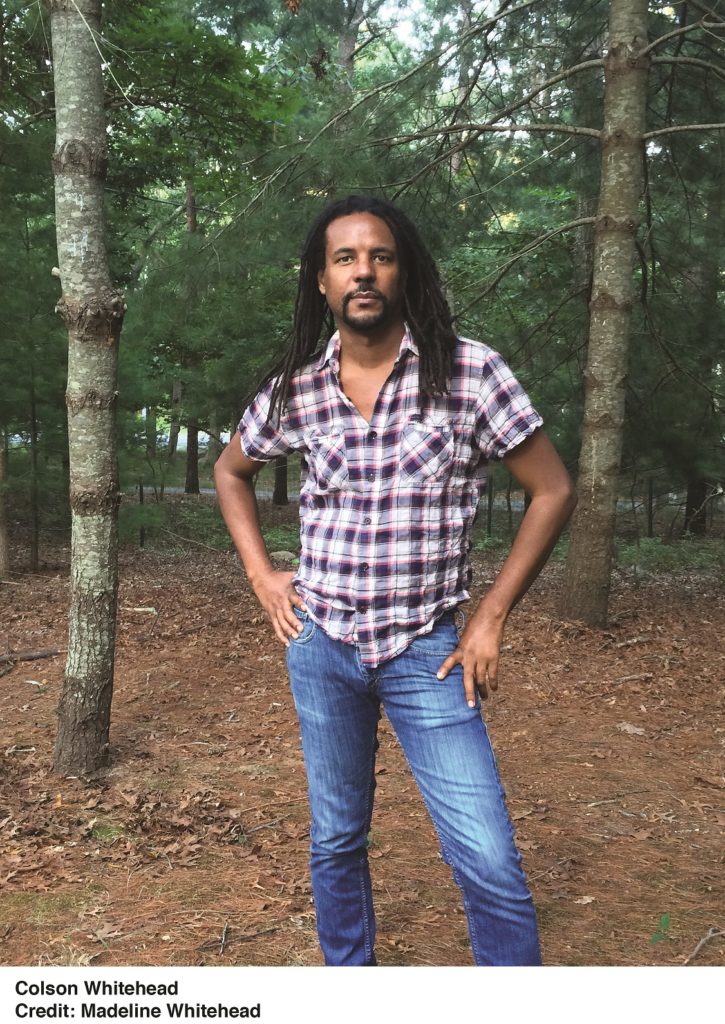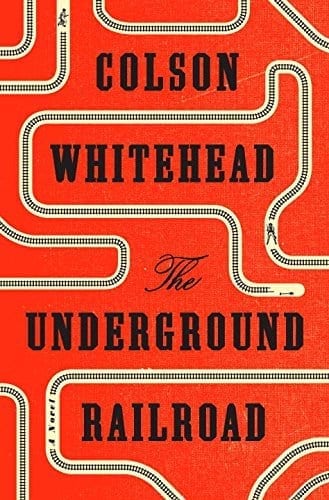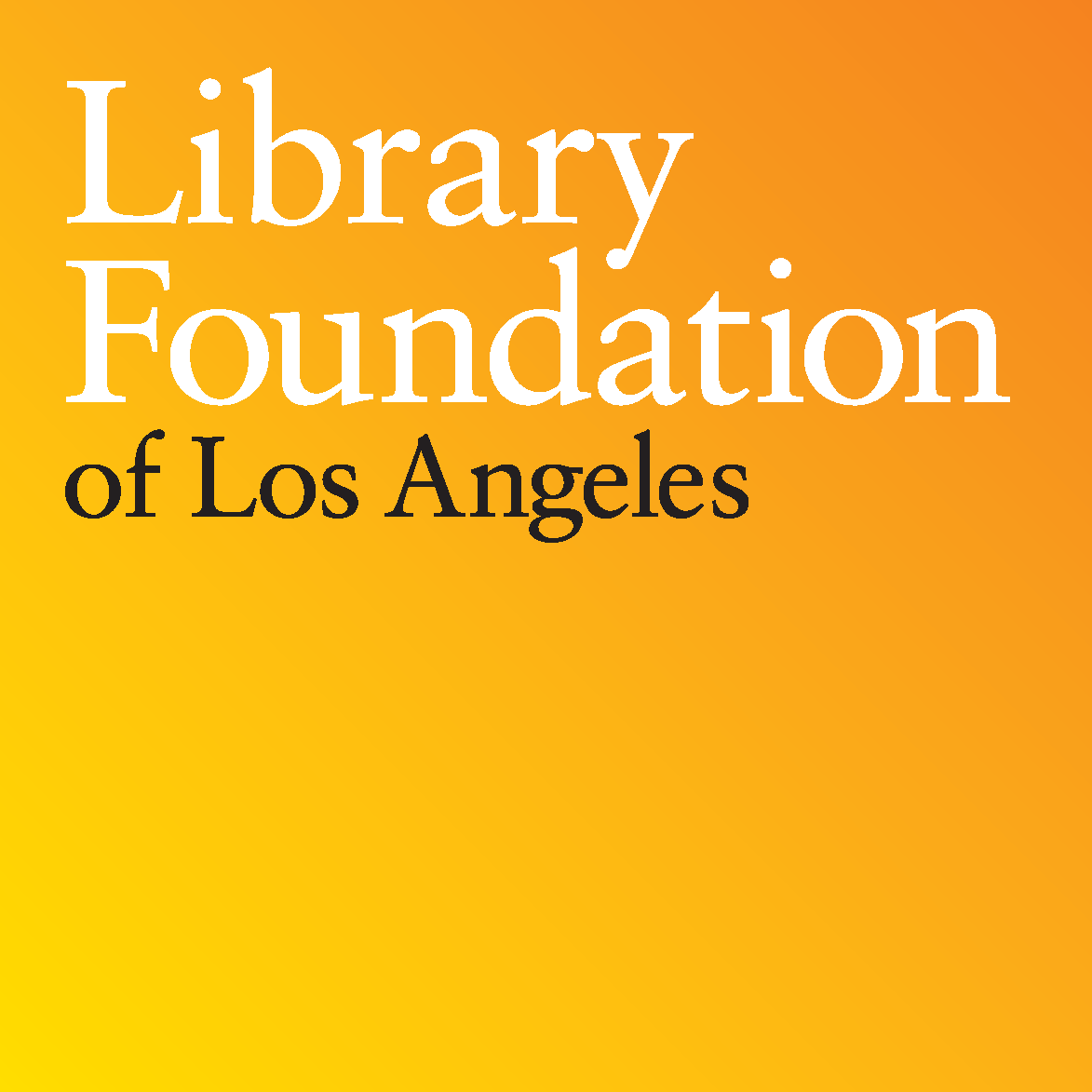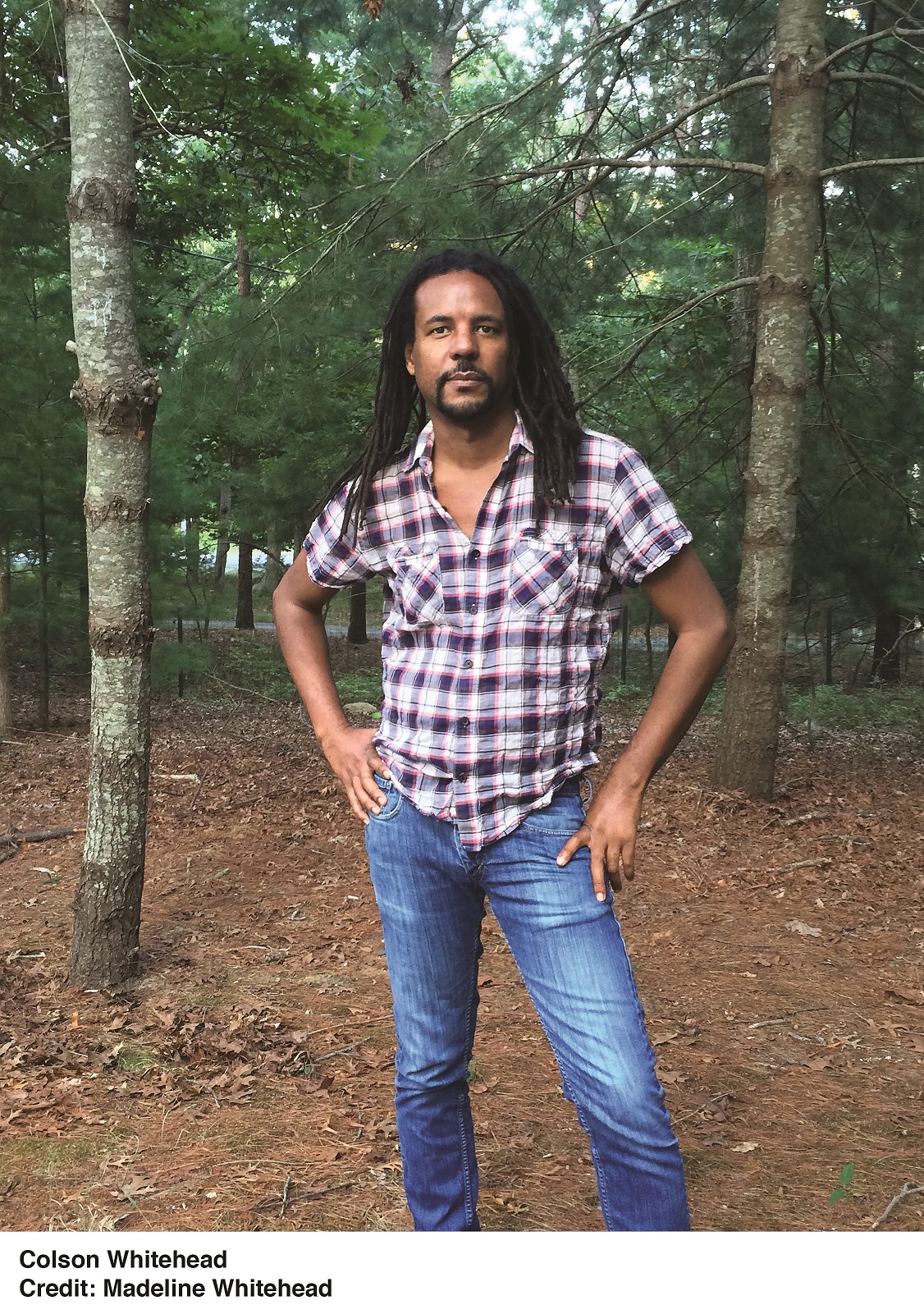What if the “Underground Railroad” was not just a metaphorical mode of transportation? Sixteen years ago prize-winning, bestselling author Colson Whitehead was sitting on his couch imagining a fascinating premise for a new book… an actual subway that carried slaves to freedom… but a book entrenched in America’s brutal history seemed too daunting for the writer to take on. A few books later—including a zombie-apocalypse thriller, an ode to New York, a tender coming-of-age, and an existential exploration into the World Series of Poker—Whitehead was still haunted by the idea of a literal Underground Railroad. Deciding it was finally time to rise to the challenge of confronting the difficult subject, Whitehead’s new novel, The Underground Railroad, follows the incredible odyssey of Cora, a fierce young runaway slave, as she makes a desperate bid for freedom through the antebellum South. The Underground Railroad has been hailed by critics as one of this year’s most important books and it was selected for Oprah’s Book Club 2016. “Every now and then a book comes along that reaches the marrow of your bones, settles in, and stays forever,” says Oprah. “This is one. It’s a tour-de-force, and I don’t say that lightly.” Before Whitehead visits ALOUD at the Writers Guild Theater on September 16 to discuss this heavy-hitting, brilliantly imagined story, we spoke to the author about researching history for fiction and finding the parallels between slave communities and society today.

The details of Cora’s journey through the antebellum South are so vivid—from the cotton fields and slave cabins to the dynamics between the slaves and slave owners. What kind of research did you do to create this historically rich setting and characters?
Whitehead: The main research was reading slave narratives—there are famous ones like Frederick Douglass’ and Harriet Jacobs’. Harriet Jacobs spent seven years hiding in an attic in North Carolina and that became the inspiration for the North Carolina section in the book. Then the Works Projects Administration [WPA] in the 1930s interviewed former slaves—people who were eight, or nine, or ten when the Civil War came and they took thousands and thousands of accounts from different former slave states. I got acquainted with a variety of the slave experience—there are small farms and big plantations, slavery was one thing in the 1780s Maryland and something else in the 1850s Georgia. You just read and take notes and find slang, nouns, adjectives that keep popping up and you try to get a vocabulary of the time and the technology and do a lot of fact-checking.
As a writer living deep inside the narrative world you are creating, what was the emotional toil of navigating these horrifying times?
Whitehead: The main thing was really just to become reacquainted with the true scope of the tragedy of slavery and realizing I was going to have to do some very terrible things to Cora and her comrades. So before I started writing, it was depressing knowing that in terms of historical accuracy I was going to have to be very brutal. On the one hand, you need distance in order to create something and have characters do what you want them to do, but also there’s a certain amount of empathy and sympathy that makes them live even though they are your own creation.
Issues of race, immigration, and human rights are still so timely over 200 years after your novel is set. How does your novel speak to the present day?
Whitehead: There are obvious parallels in terms of immigrant communities trying to find a footing—whether its poor black people, or poor Italians, poor Irish, poor Germans, poor Vietnamese, poor Chinese—and that cycle of coming to America and trying to find your footing and facing different kinds of class and race warfare. Whether its comparing modern day stop and frisk on the streets of New York to stop and frisk on the plantations as perpetuated by the slave patrollers who had the right to stop any black person on the road and demand to see their papers—there were natural parallels to contemporary society and slave society. I think obviously we have a black president, so we’ve made some advances, but the country is still pretty racist and it will take a long time before we’ve achieved distance from slavery.
Since ALOUD is part of the Central Library, we’re always curious to ask about how libraries are a part of your life and work?
Whitehead: As someone who writes books that are sometimes research heavy, I’ve been using libraries my entire life. A lot of people first find my books through libraries, so I’m very fortunate to have them around and I think we all are. Also, all the WPA slave narratives were digitized by the Library of Congress, so you can peruse them for free online… it’s a lot easier to get materials through digital collections—it breaks down the barriers and distance. I’m glad that libraries are making things more accessible.

Friday, September 16, 7:30 PM
Writers Guild Theater
An Evening with Colson Whitehead
The Underground Railroad
In conversation with Joy Press
and dramatic reading by Phil LaMarr
Purchase tickets at lfla.dev/aloud

